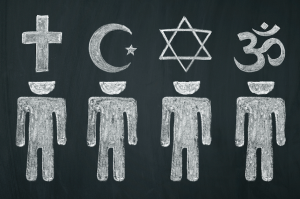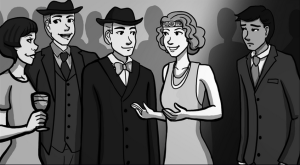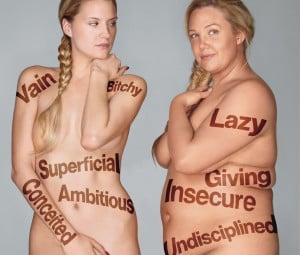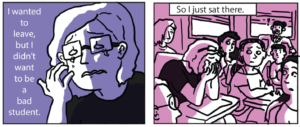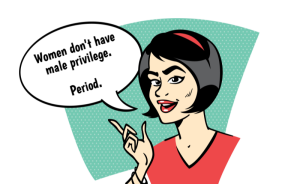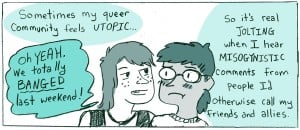
Source: Credit.com Blog
I’ve seen many wonderful articles that discuss questioning and defining your sexual orientation. Self-discovery is an important process, and many people feel a great sense of comfort once they find a label that fits – or, alternatively, not choosing a label at all.
However, there is a comparative lack of guidance when it comes to actually deciding what to do with such an epiphany. You might be saying to yourself, “Okay, I know I’m queer, now what?”
Embracing your queerness can open the door to a very exciting time in your life. Suddenly, you have an entirely new spectrum of friendships, dating opportunities, and communities at your fingertips.
With that said, it can also be a time of tremendous uncertainty: Deciding when and whether or not to come out, dealing with a truck load of social biases, and facing the very real possibility of being rejected by your friends and family.
It’s common to feel just plain overwhelmed after affirming your identity. Just take a deep breath and remember to take things at your own pace.
You know you’re queer – now let’s focus on what happens next.
Unpacking Your Feelings
Too often when we think about the initial stages of solidifying queer identity, we think about whipping out the label maker and then using our newfound identities as a means of proving ourselves to others. It’s hard out there for a baby queer!
When it first became apparent to me that gender didn’t matter in terms of my attraction to potential partners, I was in my freshman year of college and involved in our Queer/Straight Alliance.
I was surrounded by a lot of folks who were really confident in their orientation, and I desperately wanted their approval. Predictably, my realization of my queerness was prompted by my gigantic crush on my new (lady) friend, who also happened to be a slightly biphobic lesbian.
Being young and smitten, I also tried to mold my self-understanding of my sexuality around her validation. I remember eagerly explaining pansexuality to her after hearing about it for the first time because finally I found something that described how I felt. She responded that it “sounded like bullshit,” quickly extinguishing my desire to do any further exploration.
My point is that we pour all this energy and effort into asserting our identity and frantically racing to become what we perceive as a new or different person. We need to stop worrying about what other people think and take a moment to pause and reflect on our feelings.
It’s fantastic that you know who you are, and you should be proud. But realize that you don’t always have to complicate each new revelation by overthinking it or readjusting how you live your life.
If you want to make a commitment to making changes, go for it! But that doesn’t mean that queerness is synonymous with overhauling everything you think you know about yourself.
A lot of times we hear orientation spoken about as “who you really are” and “the whole truth about you.” While those affirmations can certainly be empowering to those struggling with their sexual identity, it’s equally important to note that your sexuality is only one part of you.
You are a mosaic. And your sexuality can be as large or as little of a piece as you would like. Sometimes just knowing and/or being at peace with your orientation is enough.
Come Out, Come Out Wherever You Are?
Another supposedly quintessential hurdle of queerness is coming out – and oh, doesn’t everyone have a lot of anxiety about that.
Should you come out? when? to whom? Will you be accepted? what if you’re not?
Current popular mainstream narratives would answer the first question with a resounding yes. Coming out is viewed as the main crucial step in self-acceptance for queer people, especially queer youth.
The reverse implication of that, of course, is that people don’t come out and stay in the dreaded closet are secretive, deceptive, and above all, self-loathing. If you don’t come out, you’re not being honest and you must be living in denial!
Basically, we’ve reduced queer identity to a codified, step-by-step process that allegedly must be followed if you ever want to achieve happiness and acceptance.
Gay celebrities in particular (and I say “gay” and not “queer” because bi/pansexuality is still Not A Real Thing according to media) seem to reinforce this mindset in our culture by frequently associating their closeted periods with shame – and their coming out with openness and relief.
First of all, let me just take this opportunity to remind everyone that coming out is 100% optional. There are a million circumstances that could impact your decision to come out, and they’re all equally valid. It’s your sexuality. It’s your choice.
It’s highly unfortunate – and just plain creepy – that we operate under the assumption that everyone’s sexuality should be public knowledge. How does announcing who you would like to date or sleep with have any relevance whatsoever to your honesty or integrity as a person?
You should have the autonomy to decide if your personal life should remain personal.
On the other side of the coin, deciding that you do want to come out is just as empowering. You have every right to feel liberated.
Keep in mind that only you can choose who you come out to. It might vary widely on an individual basis, and that’s okay.
However, if anyone you come out to then outs you to another person, that is absolutely not okay. Coming out to someone signifies a great deal of trust and confidentiality that should not be taken lightly.
Ultimately, your identity is yours to determine whatever you want to do with it. Whether you share it with others or not doesn’t make it any less legitimate or important.
Finding Support
Let’s talk about another significant aspect of forging your queer identity: building community.
Your friends and family might spring to mind as the most accessible, immediate support network, but unfortunately, not everyone has this luxury, especially if you’re not out.
No matter who you are, everyone needs someone to talk to or a friendly listening ear. Of course, finding allies is often easier said than done. For example, if you live in a rural area or a place where alternative sexualities aren’t accepted for cultural or religious reasons, feelings of isolation can set in pretty quickly.
It doesn’t help that our culture frequently associates early queer experiences with urban areas. Not all of us can throw on a rainbow bracelet and head down to the local gay bar.
We need to start realizing that community looks different for everyone, and everyone finds community through different means.
Although it might sound overly simplistic, the Internet is truly your best friend. Search for forums and other online spaces where people are going through similar experiences. You’ll find more numerous and diverse perspectives than you ever could in your backyard.
For whatever reason, Tumblr also happens to currently be one of the most popular hotspots for queer youth and queer activism. Admittedly, I have a slight personal bias here. Tumblr has been a wonderful support network and teaching tool for me as I learned about my own sexuality as well as others’. Check out these Tumblr-based resources.
If you prefer more face-to-face discussion and interaction, narrow your search to your local area. Even just googling “LGBTQIA support + [insert city name]” is a good place to start. There could be an LGBTQIA+ support group right under your nose. See if you can make connections close by. Here are some general links to organizations.
As much as we’d all love to snap our fingers and instantaneously find a vibrant group of friends, building a strong support network is going to take some time. You might become disappointed and frustrated at certain points, but it’s all part of the process.
In the end, you want to surround yourself with healthy and positive relationships with people who love and support you.
You accept yourself, and you deserve to have a community that treats you well. Don’t accept anything less.
Keep Everything in Perspective
Above all, embracing your queerness involves a lot of change and adjustment. It can’t necessarily be boiled down to a formula or checklist.
Everyone’s expression of their identity is shaped by their different circumstances, but regardless of what you’re going through, you deserve to celebrate!
Questioning your sexual orientation can be an exhausting process, so it’s important to take advantage of finally discovering yourself as the beginning of a brand-new chapter.
Of course you’ll find certain narratives and role models that you connect with on a personal level, and that’s great! Just remember not to stress if your experience doesn’t exactly match up to someone else’s or fit with how quickly you think you should be adapting.
Make friends. Go on hilariously bad dates. Start chatting. Sure, maybe not everything will pan out at first, but there are always a few bumps along the road.
Remind yourself that you’re the first building block in many new bridges to come.
[do_widget id=”text-101″]
Erin Tatum is a Contributing Writer at Everyday Feminism. She’s a feminist, queer theory lover, and television enthusiast living in Pennsylvania. She is particularly interested in examining the representation of marginalized identities in media. In addition to Everyday Feminism, she’s also a weekly contributor to Bitch Flicks. Follow her on Twitter @ErinTatum91 and read her articles here.
Search our 3000+ articles!
Read our articles about:
Our online racial justice training
Used by hundreds of universities, non-profits, and businesses.
Click to learn more









